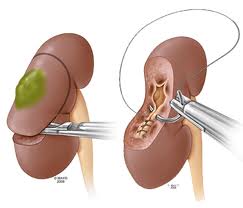 Among patients with type 2 diabetes, women were more likely to have risk factors for chronic kidney disease than men, which may also put them at risk for poorer outcomes, according to at study reported at the American Society of Nephrology held in Seattle.
Among patients with type 2 diabetes, women were more likely to have risk factors for chronic kidney disease than men, which may also put them at risk for poorer outcomes, according to at study reported at the American Society of Nephrology held in Seattle.
These findings are preliminary and need further study, but there is sufficient evidence to raise concerns about the quality of care diabetic women, compared to men, receive. The report noted that the diabetic women in the study were more likely to be obese, had higher LDL cholesterol than the males in the study, and were less likely to have received a statin to help prevent heart problems. After 5 years of followup, the women in the study were more likely to progress to a higher stage of chronic kidney disease and to progress to end-stage renal disease, although mortality rates were similar between the sexes after accounting for diabetes-related complications.
Researcher Dr. Margaret Yu, University of Washington, reported that the findings indicate that clinicians should be more vigilant about the care their female diabetic patients receive "because I think there is this overall perception that women aren't as at risk for chronic kidney disease."
After five years of follow-up, the women in the study had poorer outcomes on average, even after adjustment for baseline stage of chronic kidney disease. Although there was a hint of lower mortality among female patients, the difference became nonsignificant after accounting for numerous end-organ diabetes complications.
Source: Medpage Today

 Researchers at the University of California, San Diego School of Medicine have shed new light on how surgery impacts both chronic kidney disease and bone health, particularly in women. For the first time, their findings point to the importance of pursuing kidney-sparing surgery in an effort to preserve kidney function and to reduce the risk of bone fractures later in life. The study was published in the July 19 edition of Urology and is now available online.
Researchers at the University of California, San Diego School of Medicine have shed new light on how surgery impacts both chronic kidney disease and bone health, particularly in women. For the first time, their findings point to the importance of pursuing kidney-sparing surgery in an effort to preserve kidney function and to reduce the risk of bone fractures later in life. The study was published in the July 19 edition of Urology and is now available online.